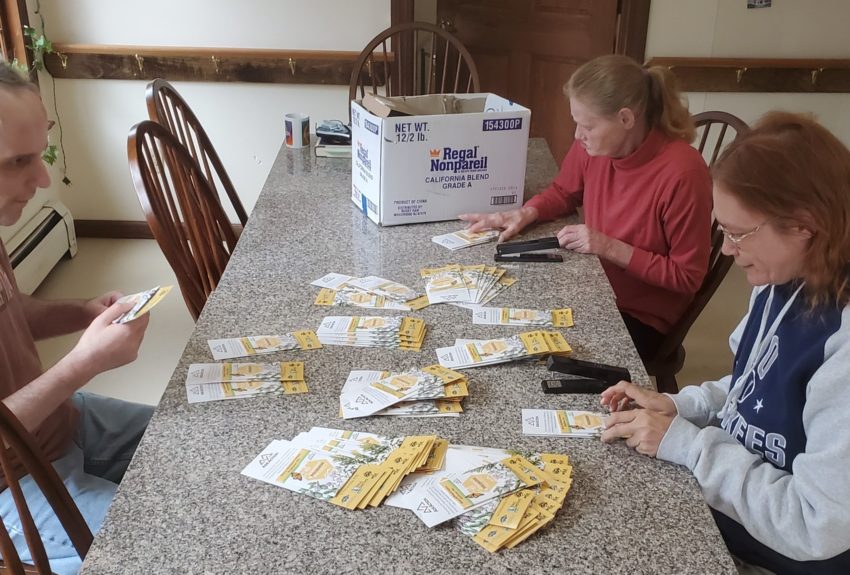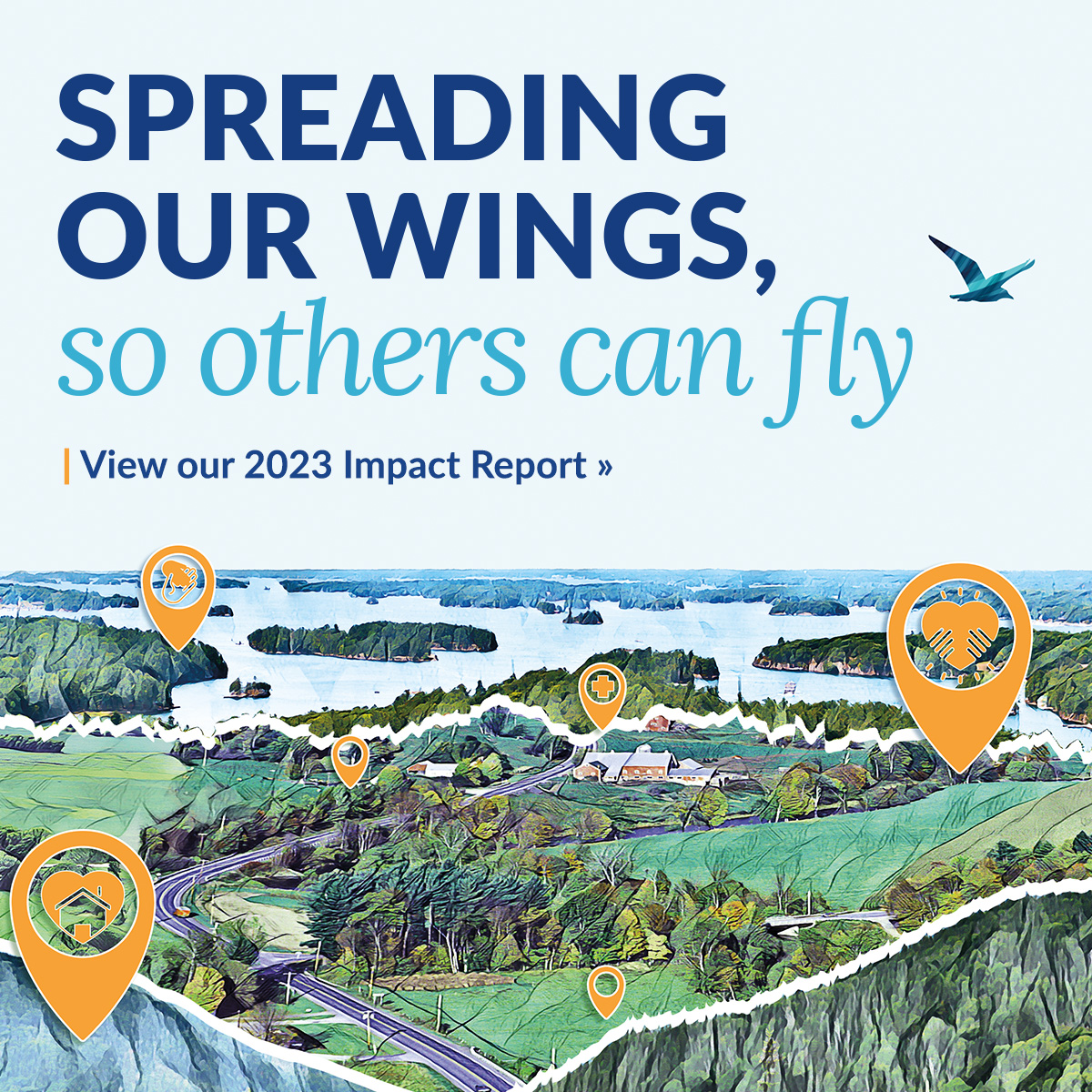Diane Cousins, Carl Lefebvre and Gerry Roe help out recently by assembling seed and brochure packets for the Adirondack Pollinator Project. Their participation is through the Enhanced Day Habilitation Program through Citizen Advocates.
Project promotes health of pollinators, like bees
A team effort at Citizen Advocates is creating some buzz through their participation in a local initiative.
A few months ago, individuals receiving supports at Enhanced Day Habilitation in Saranac Lake partnered with Adk Action to help with the Pollinator Project.
The Adirondack Pollinator Project promotes the health of pollinators – like bees and butterflies – “critical to our food and ecosystems by empowering people to take individual and collective action to help pollinators thrive.”
Specifically, the initiative promotes pollination by providing free wildflower seeds intended to provide a diversity of nectar and pollen sources for local bees, butterflies, moths, and hummingbirds.
“Some of the individuals we support are participating by stapling informational brochures to packets of seeds that are distributed to places like the Paul Smith’s College VIC,” said Eric Ackerson, Habilitation Coordinator for Citizen Advocates. “In the meantime, the college has reached out to us to provide the seed packets as part of a care package for this year’s graduating class.”
Since Paul Smith’s College isn’t having a public graduation this year, they’re providing the graduating class with something called “commencement in a box.” The college is a partner with the Pollinator Project, along with the Lake Placid Land Conservancy and The Wild Center.
“This is a great example of individuals being able to contribute to a local initiative that is providing a benefit on such a broad scale,” said James Button, Chief Operations Office for Citizen Advocates. “Citizen Advocates fully embraces activities, whether it is this or others, that offer those we support the experience of having a meaningful impact in the community.”
To learn more about the Adirondack Pollinator Project, visit www.adkaction.org.


 Previous Post
Previous Post


